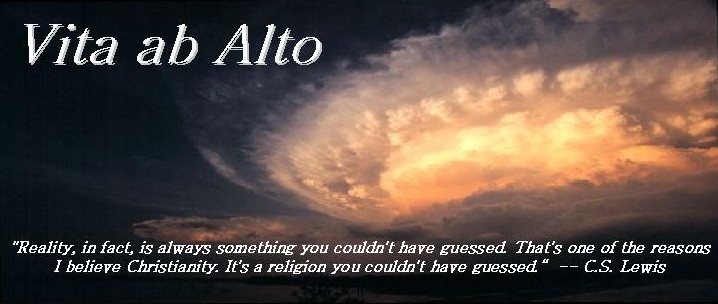Christian Carnival CXLI and Dissing Reason

The latest Christian Carnival is up at A Penitent Blogger. Lots of good stuff this week.
This entry at Pseudo-Polymath caught my attention, becuase I agree with much that Pope Benedict said in his important Regensburg speech, I find some of Pseudo's arguments cogent also:
He's exactly right. Special relativity came to Einstein in an intuitive leap, by the great scientist's own admission, and he stuck to the idea that relativity could yield a unified field theory all his life, even in the face of contrary evidence from quantum mechanics, simply because he thought his construct "beautiful." And it is. The mess that is quantum physics came about purely based on inductive reasoning.
Arthur Koestler explored the origin of ideas and intuition in general very well in The Act of Creation more than a generation ago. I find a lot of reasonable and emotional appeal in these arguments, but do beleive reason plays a vital role in the life of faith, exactly as Benedict posits.
How to reconcile the two? I haven't figured that one out yet; but I don't feel too bad -- no one else has either...
Monk
This entry at Pseudo-Polymath caught my attention, becuase I agree with much that Pope Benedict said in his important Regensburg speech, I find some of Pseudo's arguments cogent also:
Why should anyone wish God to be amenable to reason or even reasonable. It flies in the face of experience. Men at science are at their best when reason is set aside. Consider for example the following, Einstein didn’t arrive at GR via reason … but by an intellectual leap. This leap was followed then, by Mathematical aesthetic. It was a beautiful theory. Reason then does the dirty work of validating the theory. Furthermore, consider marriage. Marriage is rarely reasonable and reason certainly is not (or most emphatically should not be the only part of our person employed to validate our choice in seeking matrimony
He's exactly right. Special relativity came to Einstein in an intuitive leap, by the great scientist's own admission, and he stuck to the idea that relativity could yield a unified field theory all his life, even in the face of contrary evidence from quantum mechanics, simply because he thought his construct "beautiful." And it is. The mess that is quantum physics came about purely based on inductive reasoning.
Arthur Koestler explored the origin of ideas and intuition in general very well in The Act of Creation more than a generation ago. I find a lot of reasonable and emotional appeal in these arguments, but do beleive reason plays a vital role in the life of faith, exactly as Benedict posits.
How to reconcile the two? I haven't figured that one out yet; but I don't feel too bad -- no one else has either...
Monk



